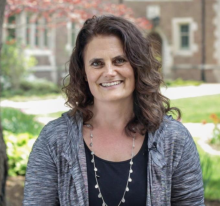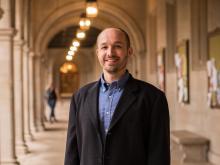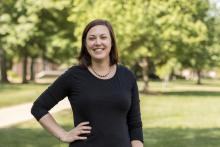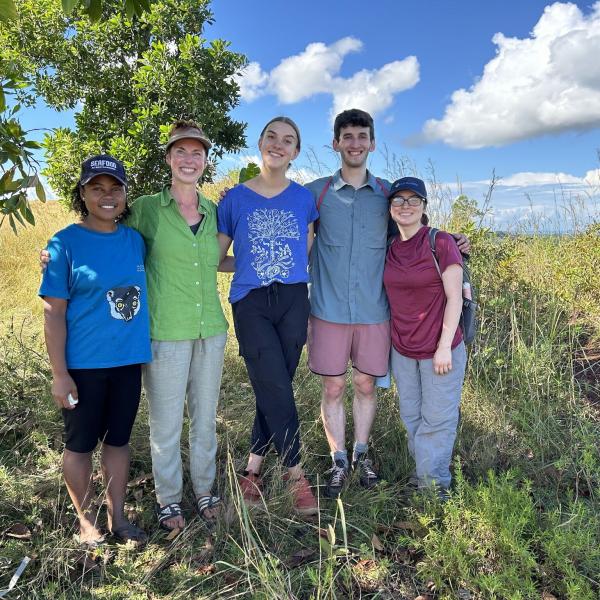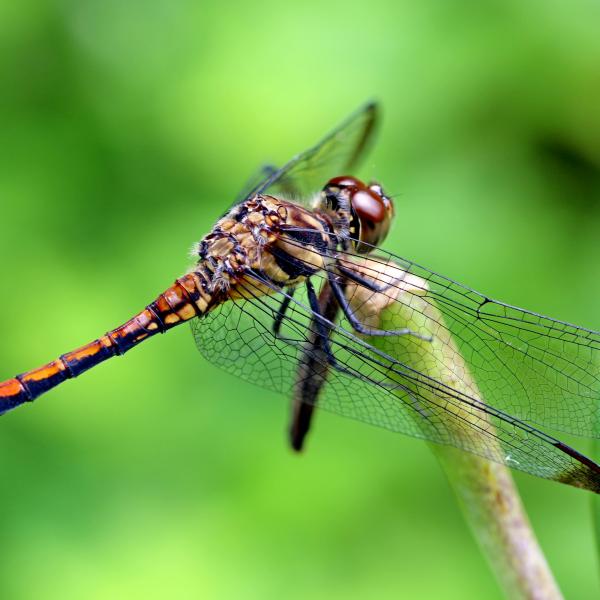Jami Ake, Andrew Butler, and Megan Daschbach are among the St. Louis-area educators named recipients of a 2021 Excellence in Teaching Award.
Every year, a select number of innovative, inspiring educators throughout the St. Louis metropolitan area are recognized through the Excellence in Teaching Awards program, sponsored by Emerson Electric Co. Leaders at educational institutions from kindergartens through universities nominate teachers for the annual recognition. At Washington University, school deans submit award recommendations in coordination with the Center for Teaching and Learning.
The 2021 Excellence in Teaching Award recipients include seven Washington University faculty members, three from Arts & Sciences: Jami Ake, Andrew Butler, and Megan Daschbach. Based in the Interdisciplinary Project in the Humanities, the Department of Education, and the Department of Chemistry, respectively, each award-winner has demonstrated exceptional commitment and skill in teaching WashU undergraduates.
“I am so excited that Jami, Andy, and Megan are being recognized this year for their extraordinary teaching,” said Michael Wysession, executive director of the Center for Teaching and Learning and professor of Earth and planetary sciences. “The Washington University faculty is distinctive in its commitment to undergraduate education, but these three, each in their own way, represent the very best of WashU’s teachers through their continued pursuit of the best practices in pedagogy and their dedication to creating inclusive learning environments that allow all of our students to thrive.”
Jami Ake
Jami Ake, assistant dean in the College of Arts & Sciences and senior lecturer in the Interdisciplinary Project in the Humanities (IPH), brings her passion for teaching to a wide variety of topics in Arts & Sciences. In addition to IPH, Ake regularly teaches courses in English literature and women, gender, and sexuality studies. She is well-known among students for her course “Projects in Domestic Violence,” which extends the boundaries of the classroom into the community and guides undergraduates to thoughtfully approach issues around domestic violence through their own research projects.
As a founding member and instructor in WashU’s Prison Education Project, Ake also brings her teaching skills to the Missouri Eastern Correctional Center, a medium-security prison in Pacific, Missouri. There, she offers “incarcerated students the freedom to think, write, and challenge received ideas in ways that traditional college students often take for granted,” Ake said.
The Emerson award is part of a growing list of accolades for Ake’s teaching. In 2014, she won the Arts & Sciences Distinguished Teaching Award, and in 2010, the student-run ArtSci Council honored her for her for teaching excellence. She continues to grow her pedagogical skills through conferences, programming through the Gephardt Institute for Civic and Community Engagement, department pedagogy seminars, and other opportunities.
Andrew Butler
At the intersection of psychological science and education, students discover fascinating courses led by Andrew “Andy” Butler, chair and associate professor of education. Butler’s approach to teaching is shaped by his scientific expertise in applying psychological science to enhance educational practice.
Butler consistently receives excellent course evaluations from his students, who appreciate his subject-matter expertise and his care for their roles as both learners and as people with lives outside of the classroom. He is committed to developing strong relationships with students and fostering a cooperative, inclusive classroom environment in which everyone feels respected and valued. This approach encourages students to fully engage in activities, persist in the face of challenge, and focus on learning rather than simply achieving a grade.
Beyond his formal classroom teaching responsibilities, Butler is engaged in informal teaching activities such as mentoring students at all levels in their own research. He is also heavily involved in university matters related to teaching and learning, using his data-driven knowledge of pedagogy to inform university policy and practice. Last year, Butler co-chaired the Instructional Planning Task Force that helped create instructional policy and supported faculty, staff, and administrators as they pivoted to remote learning during the COVID-19 pandemic.
Megan Daschbach
Many undergraduates in Arts & Sciences recognize Megan Daschbach, teaching professor of chemistry and director of the chemistry’s Peer-led Team Learning (PLTL) program, as an instructor of the introductory courses General Chemistry I and II. Her deep understanding of evidence-based STEM pedagogy, combined with a profound intuition into student learning, has helped the growth and success of the courses as well as the success of its students. Her colleagues in PLTL and STEM courses describe Daschbach as “a rock star of lower-level STEM education” at WashU.
The cornerstone of Daschbach’s teaching is supporting student well-being; she believes that students cannot optimally master course content until they feel secure and supported in the classroom. In the fall of 2018, she received an internal grant to offer formalized study skills workshops to students in introductory chemistry courses. Based on several years of internal data from these workshops and the participants’ exam scores, the workshops were shown to be incredibly successful in terms of improving student understanding of the material as well as success on exams.
Daschbach’s ability to challenge students to develop as critical thinkers and creative problem solvers in a STEM field, while also making them feel welcome, included, supported, and valued, has led to consistently stellar student course evaluations and deep appreciation from her colleagues. In 2018, she won the Arts & Sciences Distinguished Teaching Award.
